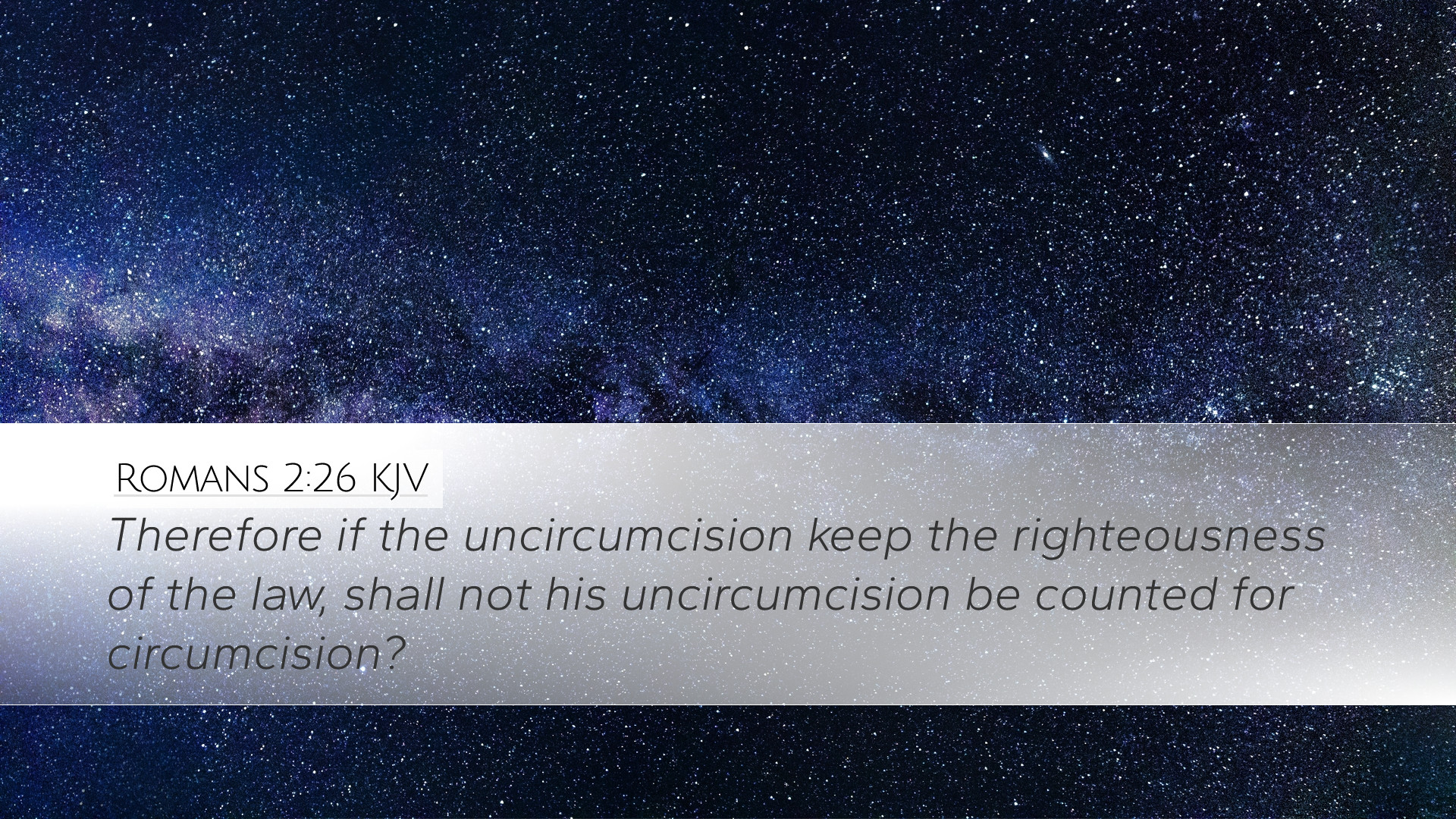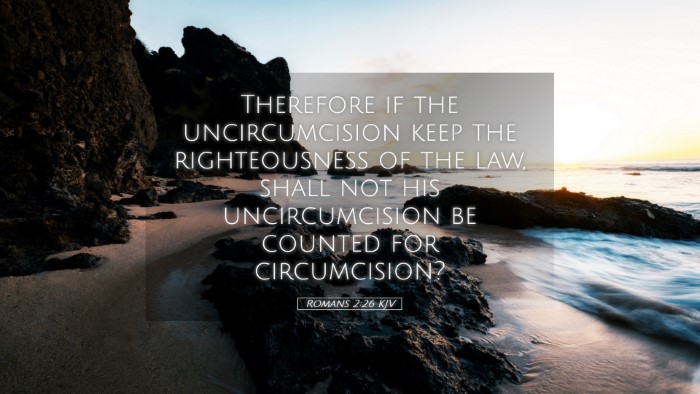Commentary on Romans 2:26
Verse Text: "Therefore, if an uncircumcised man keeps the righteous requirements of the law, will not his uncircumcision be counted as circumcision?"
Introduction
This verse is a part of the broader discourse by the Apostle Paul in his epistle to the Romans, where he systematically addresses both Jewish and Gentile audiences. Romans 2:26 confronts the false security of Jews in their physical status as children of Abraham, pointing towards the significance of the heart and actions over mere outward traditions.
Interpretive Insights
Various public domain commentaries provide unique insights into the implications of this verse:
-
Matthew Henry:
Henry emphasizes that mere external signs of faith, such as circumcision, do not guarantee righteousness. He notes that the real value of circumcision lies in its adherence to the law's spirit rather than its form. An uncircumcised person who obeys God's law exemplifies true faith that transcends ethnic traditions.
-
Albert Barnes:
Barnes highlights the paradox that an uncircumcised person who fulfills the law can be regarded as in a better position than one who relies merely on circumcision without obedience. He observes that this reflects God's justice and the universal nature of His covenant, effectively making the law's moral demands applicable to all regardless of their ethnic background.
-
Adam Clarke:
Clarke expands upon this idea by explaining that the true significance of being ritually clean comes from inner transformation rather than outward compliance. He posits that Paul aims to dismantle the barriers imposed by Jewish traditions when it comes to salvation, asserting that faith manifested in obedience is the true marker of belonging to God's people.
Theological Implications
The implications of this verse stretch deep into theological reflection. Here are several considerations for scholars and theologians:
-
Grace and Law:
This verse presents a critical dialogue on grace and compliance with the law. It invites scholars to ponder the relationship between the law and grace, suggesting that grace may activate authentic adherence to God’s principles beyond legalistic practices.
-
Covenantal Inclusion:
Paul’s argument challenges the notion of exclusivity in God’s covenant, extending it to Gentiles who exhibit living faith. This expands the understanding of the community of faith, emphasizing inclusivity based solely on the heart’s fidelity to God rather than ethnic identity.
-
Ethics vs. Ritual:
The ethical dimension of obedience to God's law, as opposed to mere ritual observance, is a theme recurrent in Pauline theology. This calls pastors and teachers to reflect on the nature of teaching about faith—not as a set of rituals but as a holistic discipleship of the heart and character.
Practical Applications
The contemporary church can derive numerous applications from Romans 2:26, which can serve as a foundation for preaching and teaching:
-
Encouragement for Authentic Faith:
This verse encourages believers to pursue a genuine relationship with God, where actions reflect heartfelt devotion rather than mere conformity. Pastors can stress the importance of self-examination to understand if they are truly living out their faith in everyday actions.
-
Building Bridges with Nonbelievers:
The passage can assist in fostering understanding and dialogue about inclusion in the faith community. Churches can actively seek ways to engage those outside their typical demographic, illustrating that faithfulness to God's command is the true measure of one's standing before God.
-
Reevaluating Traditions:
This commentary serves as a call for congregations to evaluate their own traditions critically, ensuring that such practices do not become a means of exclusion or a source of pride but rather pointing back to the underlying principles of love and obedience.
Conclusion
Romans 2:26 serves as a powerful reminder that God looks beyond the surface, seeking the alignment of our hearts with His will. As both students of Scripture and practitioners of the faith, we are called to reflect on our true motivations and to embrace a faith that is active, transformative, and inclusive. In doing this, we align ourselves not only with the letter of the law but with its divine intent.


